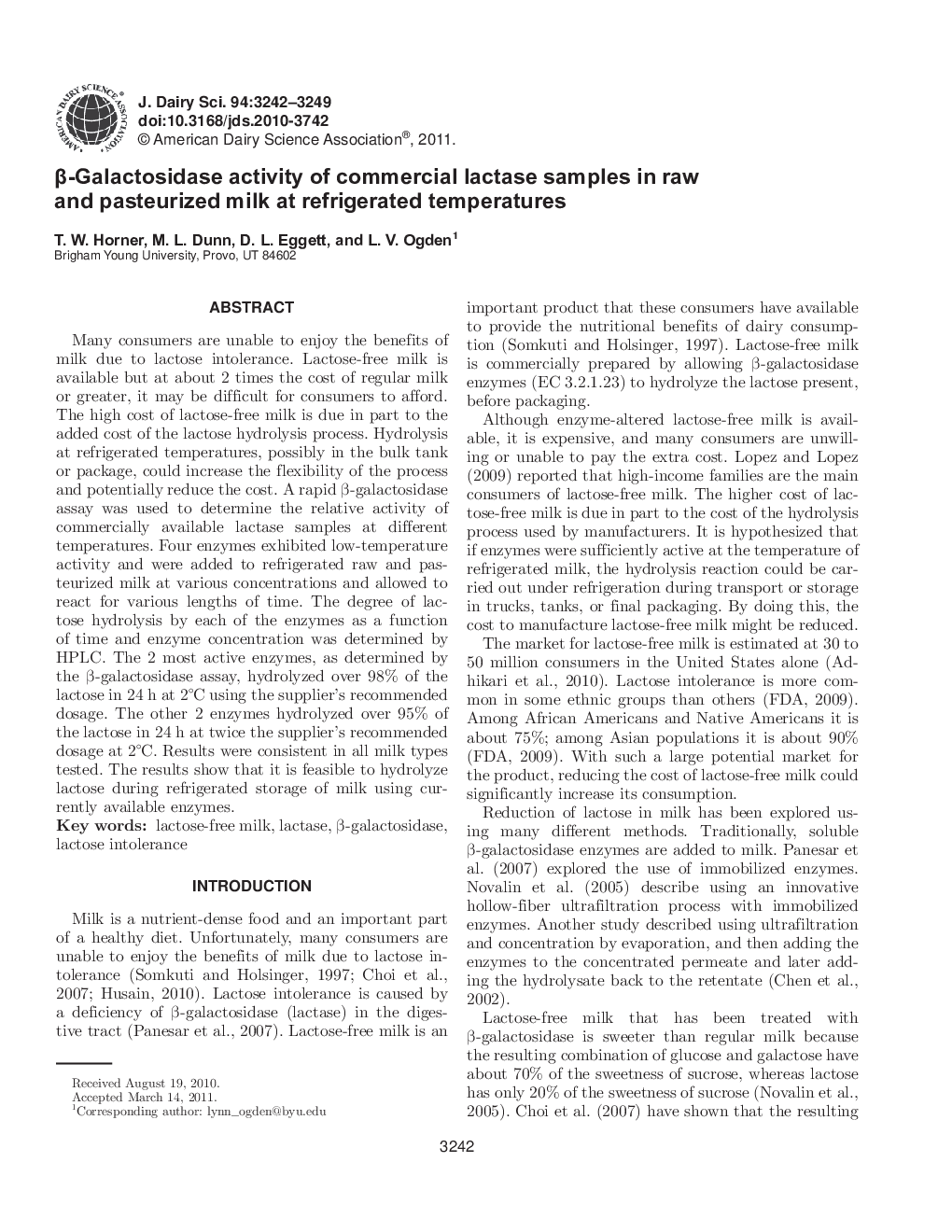| Article ID | Journal | Published Year | Pages | File Type |
|---|---|---|---|---|
| 10979296 | Journal of Dairy Science | 2011 | 8 Pages |
Abstract
Many consumers are unable to enjoy the benefits of milk due to lactose intolerance. Lactose-free milk is available but at about 2 times the cost of regular milk or greater, it may be difficult for consumers to afford. The high cost of lactose-free milk is due in part to the added cost of the lactose hydrolysis process. Hydrolysis at refrigerated temperatures, possibly in the bulk tank or package, could increase the flexibility of the process and potentially reduce the cost. A rapid β-galactosidase assay was used to determine the relative activity of commercially available lactase samples at different temperatures. Four enzymes exhibited low-temperature activity and were added to refrigerated raw and pasteurized milk at various concentrations and allowed to react for various lengths of time. The degree of lactose hydrolysis by each of the enzymes as a function of time and enzyme concentration was determined by HPLC. The 2 most active enzymes, as determined by the β-galactosidase assay, hydrolyzed over 98% of the lactose in 24 h at 2°C using the supplier's recommended dosage. The other 2 enzymes hydrolyzed over 95% of the lactose in 24 h at twice the supplier's recommended dosage at 2°C. Results were consistent in all milk types tested. The results show that it is feasible to hydrolyze lactose during refrigerated storage of milk using currently available enzymes.
Related Topics
Life Sciences
Agricultural and Biological Sciences
Animal Science and Zoology
Authors
T.W. Horner, M.L. Dunn, D.L. Eggett, L.V. Ogden,
